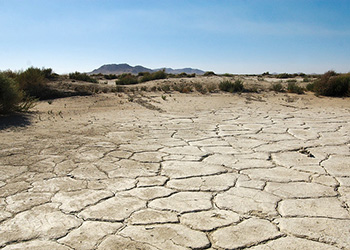
Amidst the crushing Southwest drought, Mexican breweries let companies channel dwindling water supplies into the United States.
The repeated prosection/persecution of Mexicali Resiste activists was not enough to get the Mexican federal government to step in. The daylight assassination of an advocate for indigenous farmers’ water access in Tecate was not enough to get the Mexican federal government to step in. Only in the face of a crippling water crisis that has many households in Northern Mexico reliant on water tankers has Mexican President Andrés Manuel López Obrador called for a moratorium on brewery operations in the parched region.
The dire state has been caused by a confluence of historical and environmental factors. Anthropogenic climate change has created drought conditions in western North America that have not been seen in over a millenium. Absent regular rainfall, the entire region relies on two sources: riverflow, and groundwater. Meanwhile, northern Mexico’s access to watersheds is blocked upstream by treaties entitling U.S. states to the lion’s share of cross-border flows, particularly of the Colorado River which is nonetheless vitally important to Mexicali and Tecate. Yet it is impossible to truly characterize the crisis afflicting northern Mexico without looking at the actions of industries in the region–of which the breweries occupy a position somewhere between emblematic and epidemic.
U.S. consumers have a taste for imported beer. According to the beer institute, one out of every six beers consumed in the U.S. is imported. Of those imports, an overwhelming 80% comes from Mexico. There are policy reasons for this discrepancy: antitrust and consumer laws require that beers labeled as Mexican be actually produced in Mexico. There are economic ones as well: the lower wage standards across the border make production mere miles from the United States a cost-effective strategy. (This plays out in the strange mirror that is Calexico, in California, and Mexicali, in Baja California. The two cities are essentially a single metropolis cut through by the border. Yet because all the manufacturing occurs in Mexico, Mexicali’s population is at least 20 times larger than its sister city’s.)
The raw resource fueling this thirst for savings, branding, and hops is, of course, water. A liter of beer requires four liters of water, and U.S. appetites end up taking approximately 14.8 million liters of Mexican water–out of the rivers, the reservoirs, and the ground. In a circumstance where the rains keep coming, the Colorado keeps flowing, and the aquifers steadily recharge, this is just a curiosity.
In a condition when faucets cough dust, it is nothing short of aggressive resource extraction, with the U.S. letting some trickles flow towards the Gulf of California before intercepting it, turning it into budget beer, and shipping it right back north.
López Obrador’s intervention may mean a slight relief for the dessicated northern Mexican states. (It also, at this writing, is still just words.) But it may simply mean moving the site of extraction. After years of tenacious opposition by Mexicali Resiste and other local water defense activists, Constellation Brands supposedly shuttered their border brewery and relocated to Veracruz to reduce water impacts. This move appears to address border concerns, but only because news of Veracruz’s own water crisis is harder to come by.
As these continental droughts deepen and western North America becomes forced to accept the possibility of new, arid norms, it becomes impossible to treat water as an endless boon, and ignore the complicity of industries like alcohol producers in perpetuating crisis while pursuing profits. The United States can no longer afford to dry up Mexican wells just to wet consumer palates.
READ MORE about the struggles and triumphs of Mexicali Resiste.
Image by tschundler via Flickr, used under Creative Commons license.

 English
English Spanish
Spanish